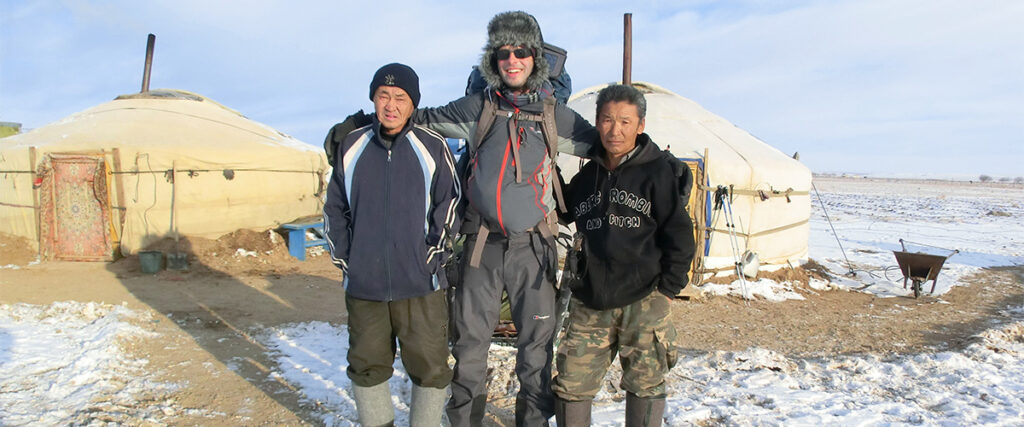British adventurer Rob Lilwall has cycled from Siberia to the UK, crossed the Gobi desert in winter and travelled from Mongolia to Hong Kong by foot. Read his invaluable tips on embracing challenges, overcoming obstacles and dealing with disruptions.
When we travel to places abroad, we tend to return on a plane, a train, or in some cases a boat. Never would we think of cycling or walking as viable options for getting home. But for British adventurer and author Rob Lilwall, that is not the case. The man took a one-way ticket to Siberia in 2004, armed only with his bicycle, and travelled through 28 countries in total on his way home including Papua New Guinea, Australia, Tibet, Afghanistan and Iran. The entire journey covered over 30,000 miles and took over 3 years, changing his life, his perspective and his calling in the process.
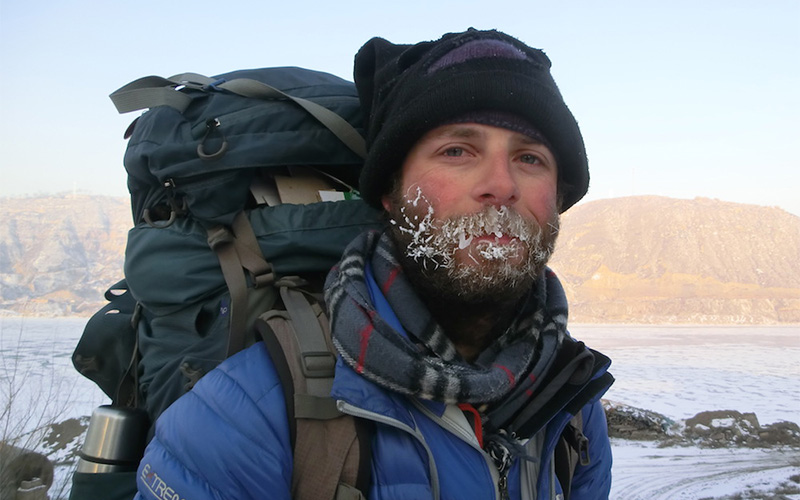
Perhaps the most common question people ask Rob Lilwall is, ‘Why did you drop everything to cycle your way home from Siberia?” And many find his answer strangely straight forward. He didn’t have a lifelong thirst for adventure, he hadn’t developed a huge interest in the countries he was to visit, and neither was he following a long-held childhood dream. He simply didn’t like who he was. “I wanted to go on an adventure and see things that I’d never seen before. I wanted more in life. I had a deep desire to grow up and I was honestly dissatisfied with who I was at that time because I hadn’t done anything that I was happy about.” Putting his hand to a task so much bigger than anything he had attempted before turned out to be the answer. “I was inexperienced and I wasn’t particularly good at anything so I wanted to see what I could do.” And it was by stepping into the unknown that he discovered his capabilities were in fact mightily impressive.
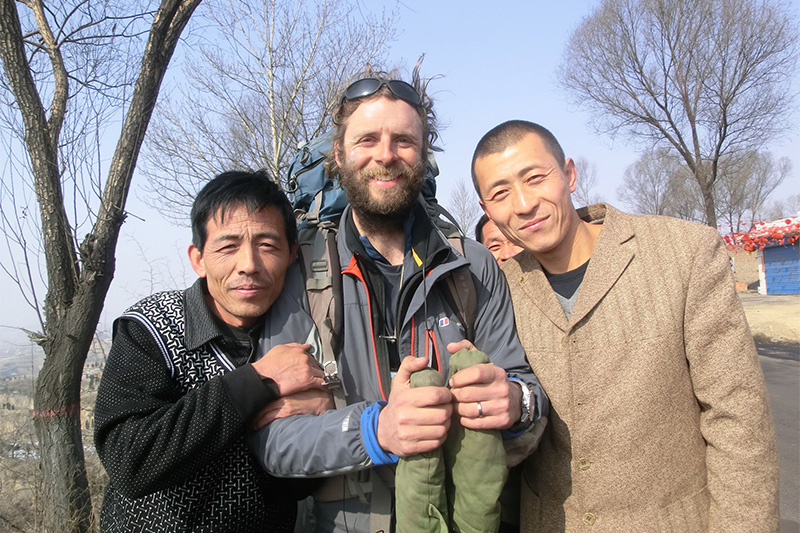
Since that first adventure, Rob has established a name for himself as an intrepid explorer. In 2011, he embarked on his second expedition from Mongolia to Hong Kong by foot with cameraman Leon McCarron. Their journey was documented by National Geographic for a TV series named Walking Home from Mongolia, which showed the pair faced blistering winds of -30℃ whilst bearing their bulky backpacks. He has walked unsupported across the Gobi Desert in winter, pedalling over the war-torn passes of Afghanistan, and he is the first man in history to drag a bicycle across the Kokoda Trail in Papua New Guinea.
Today, alongside his expeditions, Rob is also a keynote speaker delivering speeches for industry leaders including Adidas, Microsoft, and Nike. And, in spite of the mountainous nature of his achievements, his advice is generally pretty straight forward. He firmly believes that anyone could have achieved his feats. Using himself as an example of someone with ordinary talents and average capabilities, he believes he wasn’t daring in any particular aspect in the past, but rather it was the act itself of pushing himself that led him to discover he was capable of more. In other words, if you don’t set the challenge, you’ll never see how far you can go. Here, he summarizes his top tips on facing challenges, overcoming obstacles and dealing with disruptions.
Over an informal Skype call, we caught up with Rob to discuss how to embrace new challenges, overcoming obstacles, and dealing with disruptions when they occur.
1. Know where you’re going and have clear goals
Have a goal in mind when you’re facing a tough challenge to help you focus – and this applies to any situation in life. Knowing where or what you are trying to get to is vital so that when our path is disrupted, it’s easy to keep visualising that goal, which in turn will let your brain will figure out a way to get there.
It’s such a basic concept yet often we don’t take the time to be clear about what we want or what we’re doing. It’s important to externalise our goals by taking them out of our heads – perhaps write them down or talk them through with somebody. It really helps us to be clearer and it makes us more determined. You have to know where you’re going.
2. Maintain self-care and remember to slow down
People like to think of expeditions as survival adventures and they don’t take the time to rest. Often, people will push their bodies to the limit but it’s important to practice self-care. Take a day off a week during a bike expedition, or if you’re walking across the desert then make time to rest, because it’s sometimes counter-productive to push ourselves so harshly. We’re much more likely to make mistakes, and this is the same with businesses and work. Looking after ourselves and our teams means that we will make better decisions. If you work 16–18 hours a day then there’s a high chance you’ll make a mistake and, no matter how big or small it is, it creates all sorts of other problems.
There’s a study by American researcher Shawn Achor and author Michelle Gielan showing that workers who took 11 or more of their vacation days each year were over 30% more likely to receive a raise than those who took less than 11 days. In parts of the world like Asia, this perspective can get lost – instead, we just work until it withers us down. I’ve recently become a father, and I’m learning that self-care involves the simple things we teach our kids like sleep, nutrition and exercise. These days, it also includes managing our screen habits well so we don’t check our phones too much, as this badly decreases our efficiency and creativity.
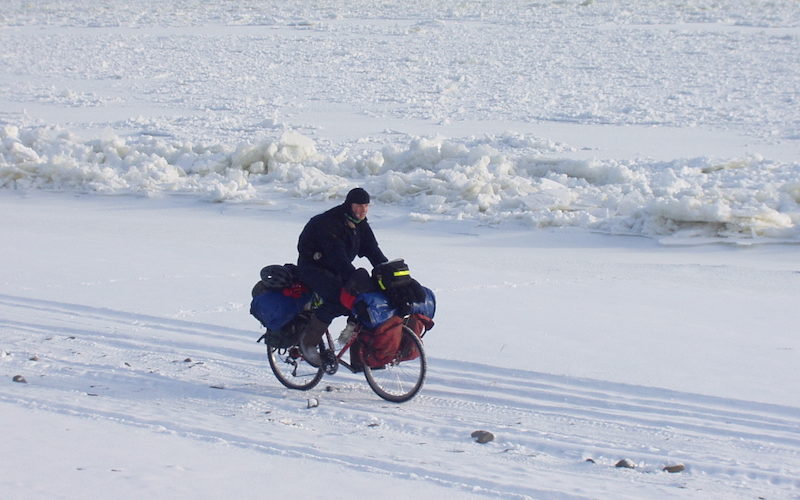
3. Change your mindset to impact your ability
There’s a concept developed by Stanford University Professor Carol Dweck – she wrote a book on mindsets and how we limit ourselves. It explores our beliefs in our abilities and what we think we are capable of. There are 2 types of mindsets – a fixed mindset and a great mindset. A fixed mindset involves thinking that our abilities are fixed and we can’t improve on things we’re not good at. A great mindset is where we think, ‘if I practice, I am sure I can get much better at what I’m doing’. This is helpful for both children and adults. When you encounter a difficult challenge, you should understand it as an opportunity to learn and grow rather than something that limits you. Our mind is like a muscle and it improves with training. You can learn how to do things by spending time on them.
4. Focus on controlling the controllable
I cannot control whether there is a bridge over a river, but I can find solutions for how to cross it another way. For example, I was a door-to-door salesman during my university years. My boss told me to focus on how many doors I could knock on, rather than how many sales I had achieved. By knocking on more doors, sales naturally went up. This is a lot healthier than dwelling on things you cannot control. We cannot control who will buy, but we can control how many phone calls we make. It is extremely discouraging to constantly think about falling behind.
5. Turn obstacles into opportunities
Every situation has positives and negatives but we can reframe the situation in a positive way and this gives us motivation and strength. For example, the Siberian winter is exceedingly harsh, scary, and – not to mention – cold. However, I chose to see this as a positive obstacle – it was a fun adventure, the scenery was beautiful, and it was a wonderful opportunity to meet the great and tough Russians who live out there.
We should positively reframe our problems as challenges and opportunities. We can train our brains to be more positive with exercises such as writing 3 good things that happened at the end of our day. Externalise these positives and train your brain to always see the bright side of things.
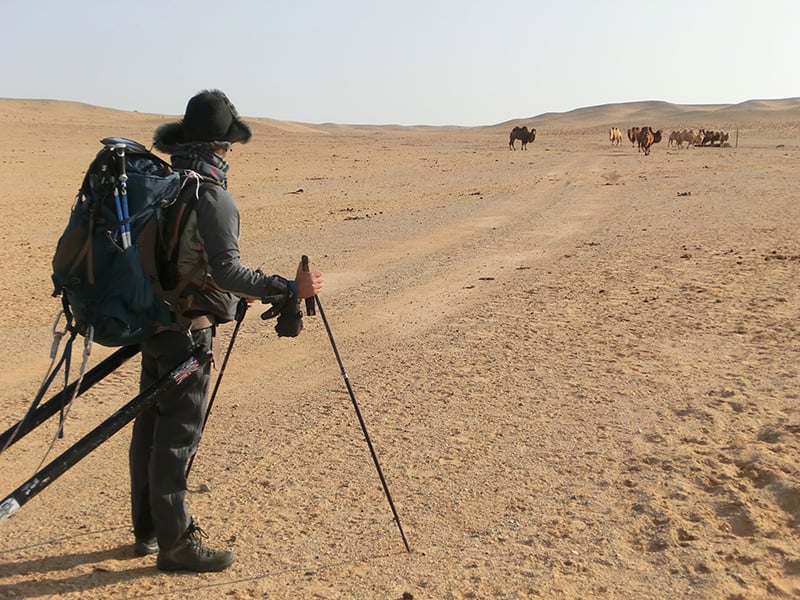
6. Seek advice – it is the best thing you can do
There were times when I was alone and I knew I couldn’t make it without help from others. I’m always someone who asks for advice from people who really know what they’re talking about. It makes a huge difference, so find a mentor who is older than you or someone with a vast amount of experience in your field – it’s one of the best things you can do. If I’m taking a business venture, I will hire a coach because he or she can teach me a thing or two about good decisions and which ones to avoid.
I had a major setback when I was in the desert and I was on the verge of giving up because I didn’t know how I could proceed. I was caught by the police trying to cross a border and they told me to reroute which ruined my plans completely. I decided to text 5 of my best friends and they all replied within 24 hours which I was truly grateful for. They took the time to talk to me and it helped so much. Encouragement is extremely important as it makes a vast difference. We should learn to share our struggles with our closest friends. The worst thing we can do is hide our problems because it is not healthy and it’s foolish to do so.
Details
www.roblilwall.com
